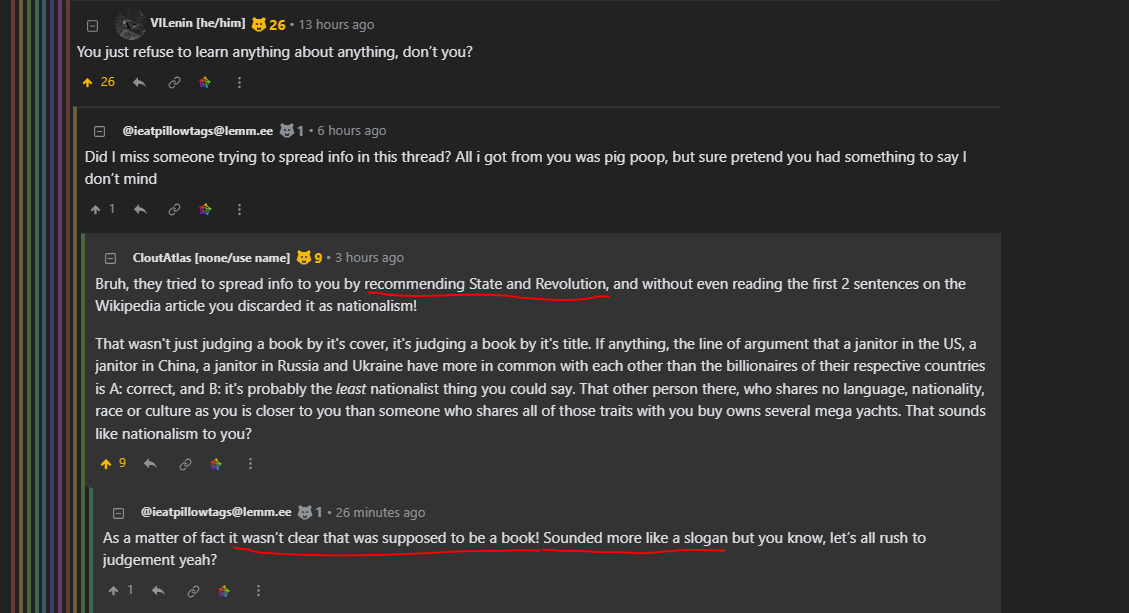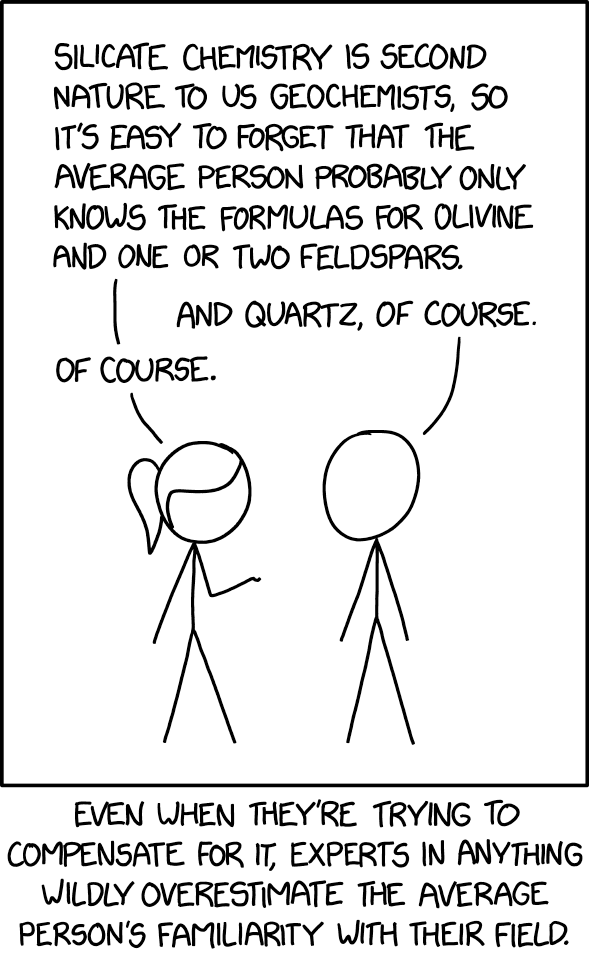the_dunk_tank
It's the dunk tank.
This is where you come to post big-brained hot takes by chuds, libs, or even fellow leftists, and tear them to itty-bitty pieces with precision dunkstrikes.
Rule 1: All posts must include links to the subject matter, and no identifying information should be redacted.
Rule 2: If your source is a reactionary website, please use archive.is instead of linking directly.
Rule 3: No sectarianism.
Rule 4: TERF/SWERFs Not Welcome
Rule 5: No ableism of any kind (that includes stuff like libt*rd)
Rule 6: Do not post fellow hexbears.
Rule 7: Do not individually target other instances' admins or moderators.
Rule 8: The subject of a post cannot be low hanging fruit, that is comments/posts made by a private person that have low amount of upvotes/likes/views. Comments/Posts made on other instances that are accessible from hexbear are an exception to this. Posts that do not meet this requirement can be posted to !shitreactionariessay@lemmygrad.ml
Rule 9: if you post ironic rage bait im going to make a personal visit to your house to make sure you never make this mistake again
view the rest of the comments

The average non-marxist has probably only read Marx and Engels' introductory works and maybe a little bit of Lenin.
e: I know there's nothing that really indicates this but I was joking
The average non-Marxist has heard of the Communist Manifesto and thinks that is the extent of the philosophical canon. The average Liberal has not even read any Liberal philosophy, like Locke, Montesquieu, Rousseau, Paine, etc.
The average non-marxist doesn't know that "Capital" and "The Communist Manifesto" are different things, much less that the latter is a pamphlet and not a book.
100%
I remember reading the communist manifesto in university twice because I was sure I must have missed something. (This was extra curricular, I was in engineering) Like it was fine, but it didn't really live up to my expectations of reframing history by analyzing it through the lens of class.
I only recently figured out that it wasn't Capital. (It was before I read your post but probably within the last year, so ~15 years from when I read the manifesto).
I haven't gotten around to reading Capital, would it work as an audio book?
Here you go:
https://www.youtube.com/watch?v=WUW6cjZgi7Y
https://www.youtube.com/watch?v=e4Cpj_wXF88
I would also recommend David Harvey's supplemental explanations of Capital, he is very down to earth:
https://www.youtube.com/watch?v=n5vu4MpYgUo&list=PLWvnUfModHP9Ci8M1g39l4AZgK6YLCXd0
Reminds me, I've been thinking about pivoting to audiobooks since I do delivery driving for a living. Wouldn't be able to focus totally on the material, but possibly more worthwhile as learning material than podcasts.
I want to say Capital was serialized in magazines in France for similar reasons?
Capital is pretty difficult, though if you're enthusiastic than go for it. I just thought I should include what I said to the OOP:
It's personally my favorite audiobook (not that I listen to a ton), but that's because I think the reader's dry tone is charming and works well with the type of humor Engels occasionally employs.
I've been working my way through using this reading by Professor David Harvey. In the beginning he mentions that he taught the work for a couple decades, and for a first go round with the work I really appreciate having someone experienced to hold my hand through it, lol.
https://www.youtube.com/watch?v=n5vu4MpYgUo&t=3331s
They are way more likely to have read Voltaire or even Montaigne than they are Montesquieu unless he substantially overlaps with their field of study, at least to the best of my memory. Swift is another.
I thought it was a great joke.
thank you, that's kind of you to say
Relevant xkcd?
i can't find it now but yeah :p
found it!
In what country? In the USA, a lot of people don't read books unless it's required for school or work. If they do read for pleasure, it's often young adult, bs 'self help' (ie Rich Dad, Poor Dad), or shallow non fiction that reinforces what they already believe.
i was doin a dumb joke sorry
Yeah, I would say that the biggest exposure kids have to reading anything related to politics here is Animal Farm for school, and that's not even that common. The average person here does not read dense poli-phil tomes even if they do read at all.
As others mentioned, you are vastly overestimating the literacy rate of average people. People talk about 95%+ literacy rates in developed countries and this is true in that the majority of people recognize basic words, but this level of emergent or basic literacy is insufficient in the context of political understanding. In most of the west, about 50% of the populace is below level 3 literacy per piaac definitions (see link below).
Comparison of some developed countries WRT literacy levels https://www.conferenceboard.ca/hcp/adlt-lowlit-aspx/
Definitions of piaac literacy levels (near the bottom, press the plus) - note the details of the definitions, effectively level 4-5 literacy is required for meaningful political understanding, let alone analysis https://nces.ed.gov/surveys/piaac/measure.asp